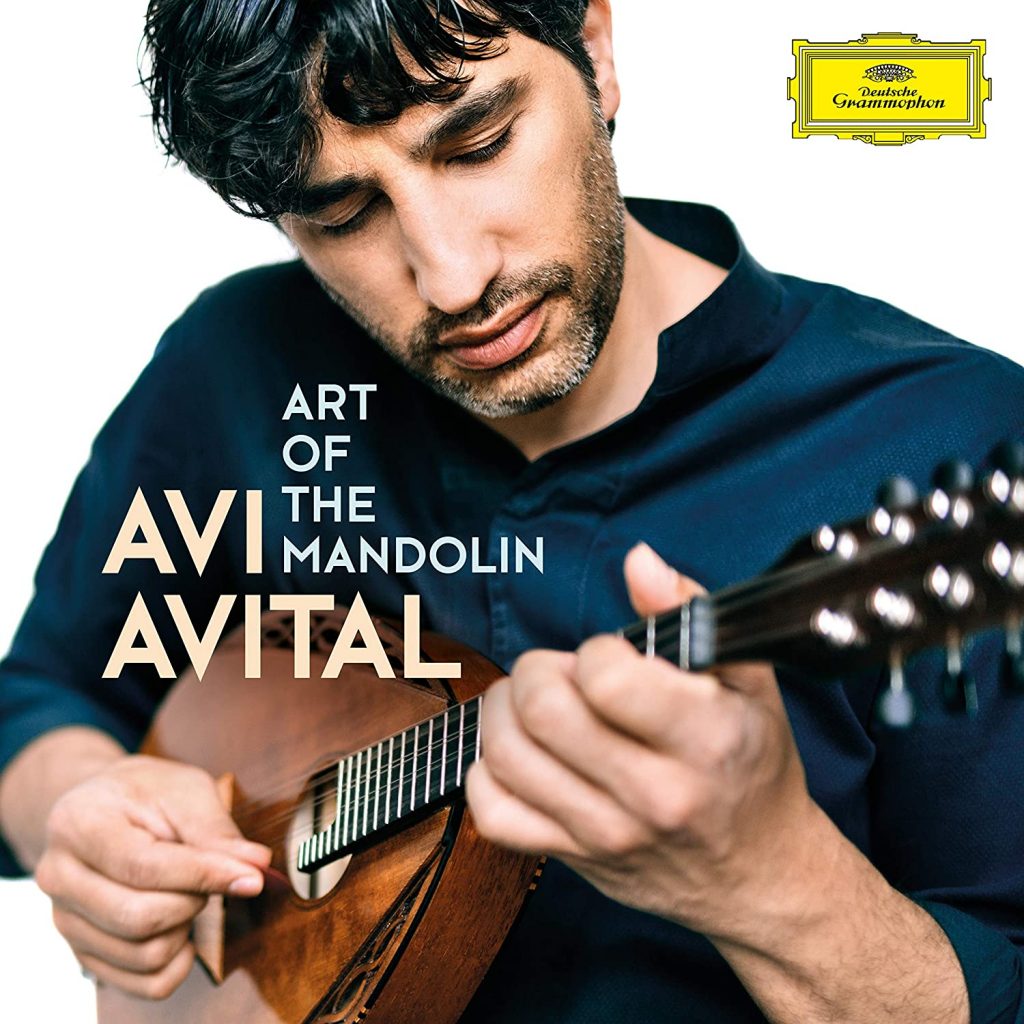The Art of the Mandolin
March 2021
Recognized by the New York Times for his “exquisitely responsive playing” and “impressive agility,” Grammy nominated mandolinist extraordinaire Avi Avital, has made an album where for the first time the entire repertoire was originally written for the mandolin. The Venice Baroque Orchestra, harpist Anneleen Lenaerts, guitarist Sean Shibe, harpsichordist Yizhar Karshon and theorbo player Ophira Zakai all joined him in this recording.
Avi Avital is one of the most important young artists in the music world today. The Israeli has revalued the mandolin by interpreting adaptations of various works of the Baroque and, he has explored traditional and contemporary music.
Vivaldi’s enchanting Double Mandolin Concerto (partnered by Alon Sariel), is brilliantly performed with the skillful accompaniment of the Venice Baroque Orchestra which definitely keeps up with the level. Staying in the Baroque period, Domenico Scarlatti’s D minor Keyboard Sonata K.89 belongs to a selection of works that are believed to have been conceived originally for the mandolin. Avital’s rich and powerful performance proves it right.
Anneleen Lenaerts on harp teams up with Avital to interpret Adagio ma non troppo for Mandolin and Harp by Ludwig van Beethoven. For this love song the pair works perfectly together reaching the listener with their exquisitely lyrical reading of Beethoven’s music.
After that is “Death Is a Friend of Ours” by British composer David Bruce. Here we get an amazing creation for a modern work reaching a delightful combination of a plainly contemporary sensibility and the best of the nineteenth century. The result is vivid and dynamic with a wonderful middle section.
We also must point out the Prelude for Solo Mandolin by Giovanni Sollima. It’s the most-recent composition on the program. It’s also probably the most fascinating and imaginative piece on the agenda.
Avital and all the artists who joined the recording show an exquisite musicality and a serious and balanced technical command. The whole performance alternating between percussive sounds and lyricism is bright and warm. The result is a marvelous collection of textures and timbre. The disc’s accent on chamber music for plucked instruments is a great choice, and a we can almost feel the sense of joy that comes from the playing.
Jumping to the last piece of the program we find the Carillon, Recitatif, and Masque by Hans Werner Henze. The sounds are intrinsically ingenious and put in hands of the virtuous soloists, the three instruments magically blend into one. The album as a whole is kaleidoscopic and naturally lively. We are facing a highly recommended recording.
– Paul Thomas

